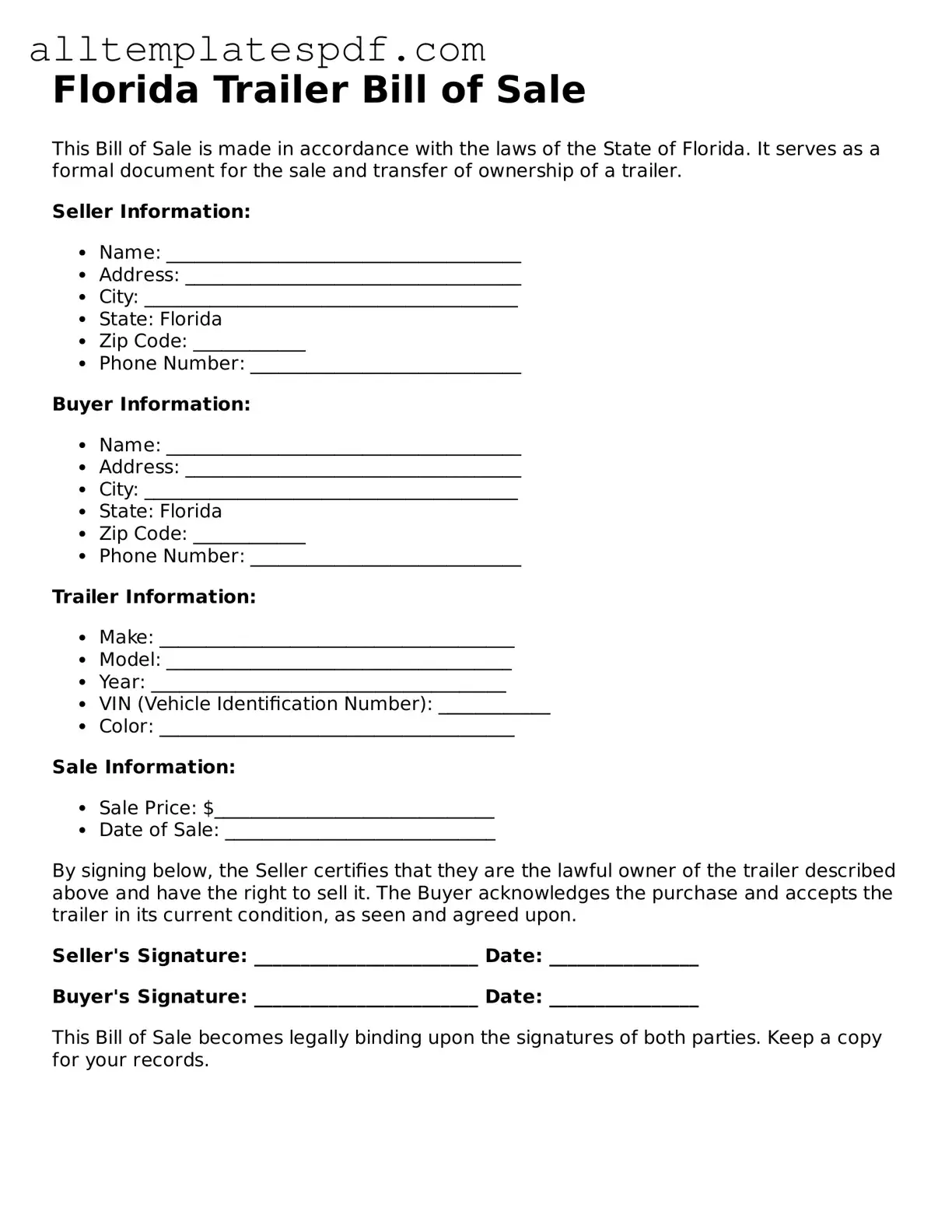Blank Trailer Bill of Sale Template for the State of Florida
The Florida Trailer Bill of Sale form serves as an essential document that records the transfer of ownership for a trailer from one party to another. This form includes vital information such as the buyer's and seller's details, trailer identification, and sale terms, ensuring a clear and legal transaction. To facilitate a smooth transfer process, it is important to fill out this form accurately.
Ready to get started? Fill out the form by clicking the button below.
Open Editor

Blank Trailer Bill of Sale Template for the State of Florida
Open Editor
Fast and easy form completion
Complete Trailer Bill of Sale digitally — fast and easy.
Open Editor
or
↓ Trailer Bill of Sale PDF Form
